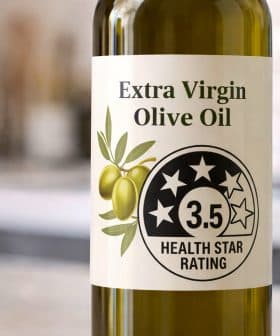An Avocado a Day May Help Lower Bad Cholesterol
A new study from Penn State University demonstrated that consuming at least one avocado each day reduces the type of cholesterol that is known to lead to the accumulation of plaque in the arteries.
A recent study found that including one avocado a day in the daily diet can help reduce LDL, bad cholesterol, particularly small, dense LDL particles and oxidized LDL, in overweight and obese adults. The antioxidants in avocados, such as lutein, are believed to be responsible for these positive effects on cholesterol levels.
The reputation of avocados for being a superfood just acquired more luster. A randomized controlled study found that including the food in the daily diet reduced LDL, bad cholesterol, in overweight and obese adults. Specifically, avocados decreased small, dense LDL particles, as well as oxidized LDL.
“We were able to show that when people incorporated one avocado a day into their diet, they had fewer small, dense LDL particles than before the diet,” Penny Kris-Etherton, a professor of nutrition at Penn State, said in a press release. She noted that these particles are especially implicated in the accumulation of plaque in the arteries.
People should consider adding avocados to their diet in a healthy way, like on whole-wheat toast or as a veggie dip.
“Consequently, people should consider adding avocados to their diet in a healthy way, like on whole-wheat toast or as a veggie dip,” she said.
The reduction in oxidized LDL particles is significant. Studies indicate that oxidation is the basis for heart disease and cancer. Therefore, if certain foods can prevent this harmful action, the results could be very beneficial, Kris-Etherton said.
See Also:Olive Oil Health BenefitsSince earlier studies have shown that avocados can help lower LDL, the authors of the new study decided to investigate the food’s effect on oxidized LDL particles. The group of participants consisted of 45 overweight or obese adults. During the first two weeks of the experiment, all participants were required to follow the typical American diet to put them on a similar footing.
In the next phase, each participant followed one of three diets: low-fat, moderate-fat and moderate-fat with an added avocado per day. The moderate-fat diet that included no avocados was supplemented with monounsaturated fatty acids to match the quantity of healthy fat contained in the avocados.
Testing after five weeks showed the adults on the diet with avocados had significantly less oxidized LDL than those on the other two diets. They also had higher levels of the antioxidant lutein, along with lower amounts of small, dense LDL particles.
According to Kris-Etherton, LDL particles vary in size. While all of them are harmful, the small particles are the most damaging.
“It is not surprising that incorporating avocados in a moderate-fat diet helped decrease oxidized LDL cholesterol levels in the study’s participants,” functional medicine practitioner Kelly Bay of Innate Wellness Group in New York City told Olive Oil Times. “Oxidized LDL cholesterol is the result of regular LDL cholesterol coming in contact with free radicals.”
“Antioxidants combat free radicals and avocados are a rich bioavailable source of the antioxidant carotenoids lutein and zeaxanthin,” she added. “It is likely that these constituents may be responsible for lowering oxidized LDL levels.”
Along with finding out what nutrients in the avocados do contribute to lowering “bad” cholesterol, the researchers also learned that monounsaturated fats do not. Participants following the moderate-fat diet without the avocados did not exhibit the same positive effects.
“In addition to antioxidants, avocados contain a good amount of fiber and beneficial anti-inflammatory fats such as oleic acid, which can help lower triglycerides and improve HDL levels,” Bay said. “The food is incredibly nutritious and contains a wide array of vitamins and minerals, including vitamin K, vitamin C, vitamin E, folate, potassium, B1, B2, B3, B5, B6 and more.”
The study was published in The Journal of Nutrition.









